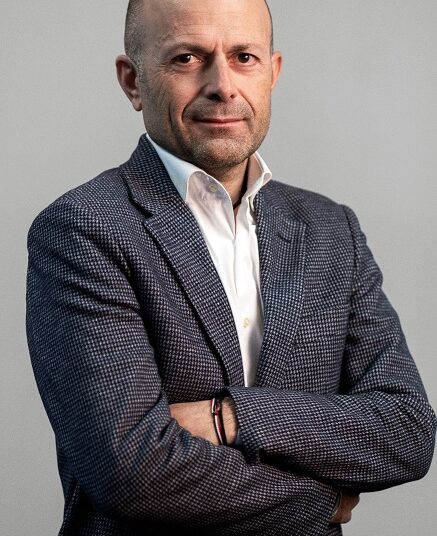The COP27 climate conference, which concluded its activities in Sharm el-Sheikh last week, witnessed the participation of Epson, the world’s leading technology and printers’ manufacturer. Epson presents the latest environmentally-friendly technology solutions, products that consume less energy and fewer raw materials, and help reduce carbon emissions according to its sustainability strategy 2050.
In this respect, The Egyptian Gazette interviewed Luca Cassani, Head of Corporate Sustainability at Epson, on the sidelines of COP27 to be got much acquainted on the company’s latest solutions. Following is the detailed interview:
What innovation solutions does Epson offer in the field of sustainability in the coming years?
We are a technology company, and innovation is one of our cornerstones, and the heart of our solutions to societies, and we strongly believe that innovation enables industries to reach sustainability, so we always talk about the terms “innovation and sustainability” and they are what we focus on in the coming years.
We are taking steady steps towards reducing energy consumption, developing dry fiber technology and recycling in the manufacture of our products, for example we produce PaperLab machines for paper recycling in offices, these machines are an example of the circular economy where printed and wasted paper can be converted into new papers in just two minutes, Without consuming more energy or raw materials.
Each day, Epson invests about €1.14 million into Research and Development, as a reflection of how important innovation is for the company. To support our sustainability goals, Epson is investing more than €770 million (¥100 Billion) in sustainable innovation and developing new technology to reduce environmental impact.
These investments in this field represent 9% of its total investments. We also have a research and development center in Japan that includes about 2,000 engineers in the fields of modern technology and environmental technology, which is the basis for achieving sustainable development.
What are Epson’s environmental goals? and what exactly is a circular economy?
We at Epson have a clear vision that includes three phases, a long-term phase during which we seek to make 2050 the year in which our carbon dependence in our industry is negative, while most countries and major institutions are seeking to reach net zero, but we want to go further. We want our use of carbon to be negative. As for the medium-term stage, during which we aim to work to reduce dependence on carbon significantly, removing carbon from the atmosphere is our goal in 2030, which is in line with the provisions of the 17 SDGs by the United Nations.
During the short-term phase, we are working on 100% renewable energy, and we have already made progress in that in Europe and Japan, and we seek to implement this in all the regions in which we work, and we are moving strongly towards implementing the revolving economy in full.
In the past, the industry was completely dependent on raw materials. The product is manufactured and used and then disposed of after use. This method is no longer possible. Waste and wasted materials now have value for us to recycle and manufacture again, which reduces consumption energy sources and raw materials, and also contributes to the longevity of the product.
What are Epson’s priorities in its business strategy?
We have our own philosophy of management, we believe that innovation and sustainability are two main values that we must follow in our business, and they are what we will rely on in the future, we want to enrich the communities in which we work with sustainable technology, so we cooperate with governments and the private sector in the Middle East countries and Egypt In community programs that achieve sustainability and development, to finally provide smart technology for a smart society.
How do you see their participation in the climate conference and what is your message to the world?
In the Green Zone in Sharm el-Sheikh, I saw many technology companies, presenting their solutions, ideas and goals. We also have our goals in sustainable development, and we have another goal, which is to create a network between these companies to work within the framework of the United Nations sustainable development goals that were launched last year, and our message revolves around generations. The new ones that must be involved in important global issues such as the climate crisis, these people have visions and ideas, they need to be implemented, and our role is to help them implement these ideas.






Discussion about this post